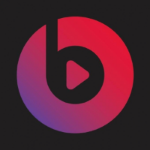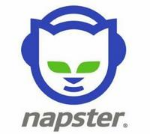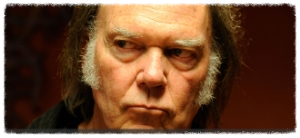In last week's posting I expressed my excitement about many of the new features in today's streaming services. In addition, I posited that streaming was here to stay.
Because of this and the fact that I too, am an artist, I feel the need to weigh in on the opposite side of the streaming camp. The idea here is that artists, at least successful ones, make their living at least partially, by selling their music online and unfortunately, streaming could effectively remove this source of income.
To give you an idea how little income is generated by streaming, I'll tell you how this has worked (or not) for yours truly. I do this mainly to inform you accurately and first hand with regards to how these music distribution systems work. Although my numbers are paltry, they are never the less indicative of what kind of deals established artist are up against.
With that out of the way, here goes. I wrote a song that got more than one million hits on YouTube. t was called "Pylo The Pylon" and I decided early on to post it on iTunes and Spotify. A recent look at my 'earnings' found the following: for every song sold on iTunes (in the US, GB and AU pay a bit more) I got $0.70 (seventy cents), for streaming on Spotify: $0.0066 (that's sixty six thousandths of a dollar) and iTunes streaming I received $0.0025 (even less than Spotify.)
This means that if I was to make the same amount as one sale of the song on iTunes I'd have to stream 106 songs on Spotify and 280 songs on iTunes. This is just to make a freaking seventy cents!!!
Obviously, the true bread and butter for musicians, at least with sales online is with selling songs, not streaming them. This, unfortunately, is not where things are headed. Instead, more and more of us are using streaming services to hear our music. This, in effect, is robbing the artists just as profoundly if not more so than those dreaded pirates from Napster (us, in other words) back in 1999. The only difference now is the ones doing the stealing are the record executives! "Meet the new boss, same as the old boss" - rings true, yes?
The reason this is happening is that the streaming services are striking a deal with the big record companies. Services like BeatsMusic, Rdio, et al are paying a regular huge sum of money to be able to stream their catalog. This money goes straight into the pockets of the record companies and none of it goes to the artists. Instead, the artists get their paltry micro-cents per stream and if they're lucky, they'll get a sale of an actual song here an there. Unfortunately, it appears that those sales are going down every year.
There have been attempts to try to take the interest of the listener back to the land of 'owning' their music. For instance, many of us appreciate the better quality that comes from owning the CD. We've also been disappointed too many times; finding our favorite artist taken off a streaming service. Hence, we purchase the CD's so that we can assure their availability.
In addition, Neil Young is attempting to activate our interest in listening to FLAC versions of our music. FLAC is a lossless (no loss in quality) format for music. The Pono Player espouses the ability to reproduce music with a clarity and depth of impact that normal digital players can't. Right now, or should I say, in October when the Pono music store is supposed to go up, you'll be able to buy the player for $400 and albums for between $15 and $25. This could get some people to pursue buying music again. Two things seem to be in its way: 1) the cost and 2) there is already talk of FLAC streaming coming to the masses. (sigh)
So, my friends, for now the plight of the recording musician that doesn't tour (that's a whole other kettle of fish) is that of poverty, I'm afraid. I can't argue with the listeners that would rather pay $10 a month to be able to hear whatever they want. Hell, I do the same thing. But we, as artists and listeners have to think about the long view. If this keeps up, there will be fewer and fewer really good home-grown artists. There will be the mainstream dreck that too many folks enjoy and then there will be cottage-artists that create good music but are limited by the amount of time and effort they can apply to their art. You need those 10,000 hours, baby!
To my mind the beauty of what the digital age brought about was the democratization of the music industry. Unfortunately, the very same technologies that made all of us available to the world could very well thrust us back into anonymity.




